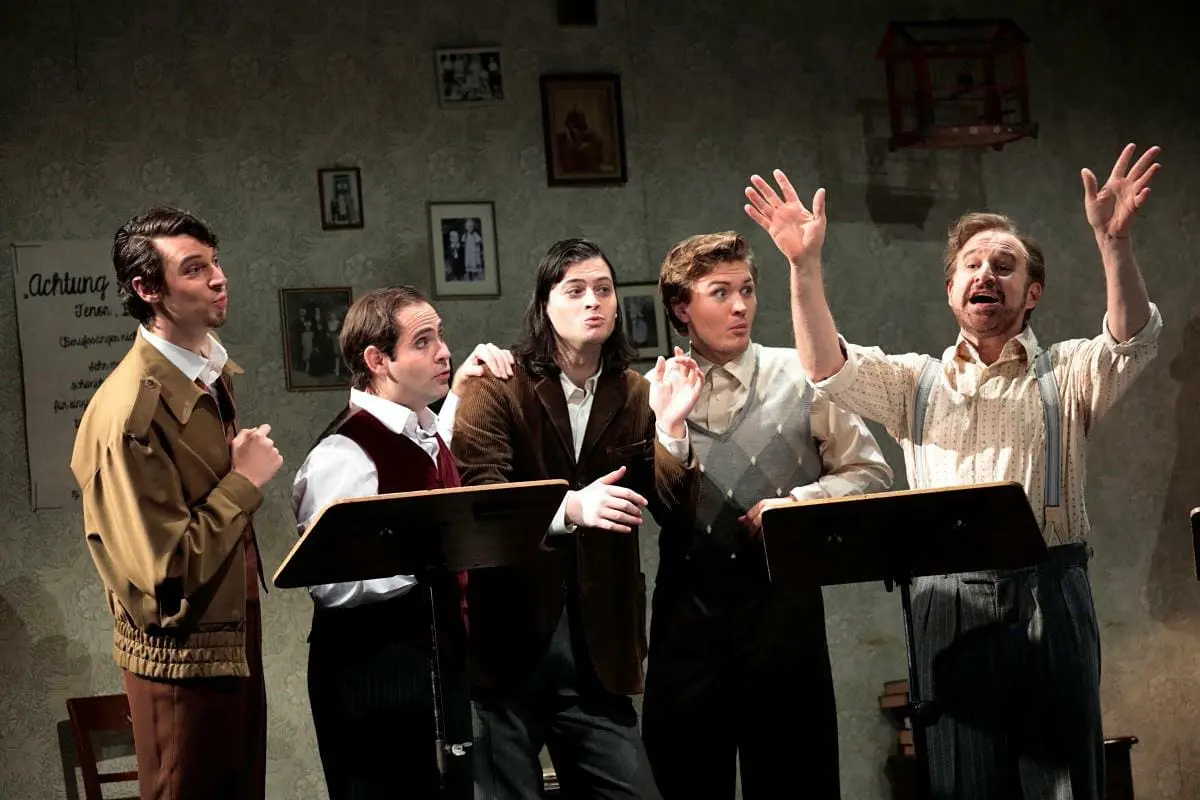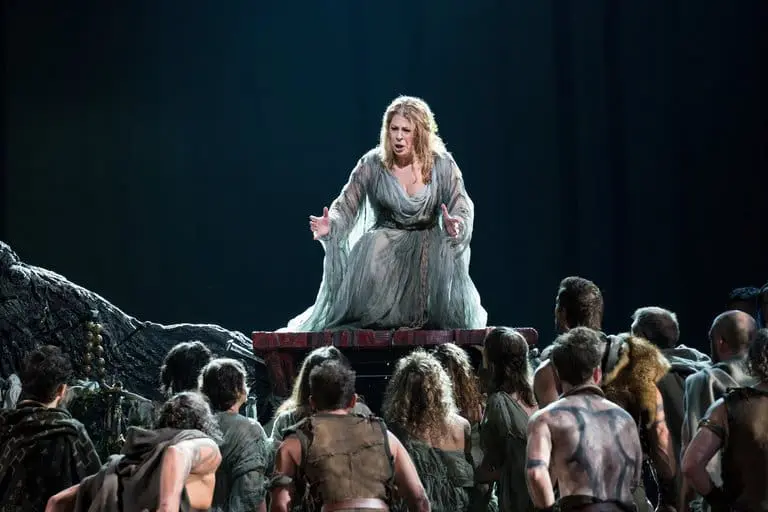The November 2020 opening of Orchestre Classique de Montréal’s production of Laura Kaminsky, Mark Campbell, and Kimberly Reed’s chamber opera As One opened up another frustrating conversation about where transgender people belong in the performing arts.
Navigating opera as a transgender woman
As a transgender woman, I’ve found that these conversations almost always become thought-experiments dominated by cisgender people who discuss transgender experiences and needs philosophically, rather than dealing with the real challenges we face.
In response, I would like to offer a transgender perspective on the unique and valuable ways we can contribute to the performing arts.
I couldn’t acknowledge that I was transgender or even queer until 2010, when I was studying voice at St. Olaf College. I was confronted with difficult realizations about who I am that I couldn’t reconcile with my plan to become a classical singer. Suddenly I was caught between two options: to live an authentic life or to keep studying voice. Maybe I was offering myself excuses, but I wasn’t willing to stop singing, so I didn’t change course. It wasn’t until January 2020 that I came out publicly as a transgender woman.
Between the moment my egg cracked–a term some transgender people use to talk about the moment you realized you were transgender–and the moment I came out, I received my Masters of Music in Voice from The Juilliard School, studied privately in Vancouver, BC, Ankara, Turkey, and Portland, OR, and joined Oper Köln as a member of the Opernstudio.
Three people in hair and makeup at Oper Köln knew I was transgender. I felt my fears of coming out were justified when I asked a manager if I should tell the Artistic Administration, so that they could take my needs into account with design concepts. “No, no,” the person said. “Don’t do that.”
In other words, I put off addressing my gender, and committed all my energy, time and money to singing.
Moving forward from the ‘tipping point’
When As One premiered in 2014, it was an edgy “chamber opera with a twist,” according to The New York Times. But for me, I can remember the exact moment when I read about an opera that told a transgender story and was created in part by a transgender woman. I was blown away.
As One belongs to the so-called transgender ‘tipping point,’ the moment when transgender people entered mainstream culture for the first time. It premiered after Laverne Cox was on the cover of Time Magazine on May 29th 2014, and before Caitlyn Jenner was on the cover of Vanity Fair on June 25, 2015. If we look back on As One like we would look back on an episode of Orange is the New Black, we can agree that there are faults while appreciating its merits and place in history.
However, the question of producing As One is more complex than rewatching a television episode.
When it comes to producing theatrical performances, it is imperative to consult the present moment and ask what we want to bring to life right now, as if for the first time. Although performers don’t have to share a character’s identity to play their part, productions must demand a deeper understanding of truth and representation. We have to investigate the consequences of the choices we make and ask how and to what extent we are guilty of excluding and disenfranchising transgender performers–or any otherwise marginalized performers in general.
Transgender people have experiences that cross cultures and eras. Our lives demonstrate the ways human beings can exist, which is at the heart of opera. A transgender theatre, or a theatre that transcends gender, transcends everything that is contained in the words “male” and “female”–it is human.
To ask questions beyond gender is to ask questions at the edge of our understanding of our physical bodies and inner selves. Transgender people can speak to what this means and guide others to it and through it because we have endured it our entire lives.
We need people to walk with us in solidarity, so we can keep each other safe and strong. If you want to hear our voices, make sure that we are heard.












